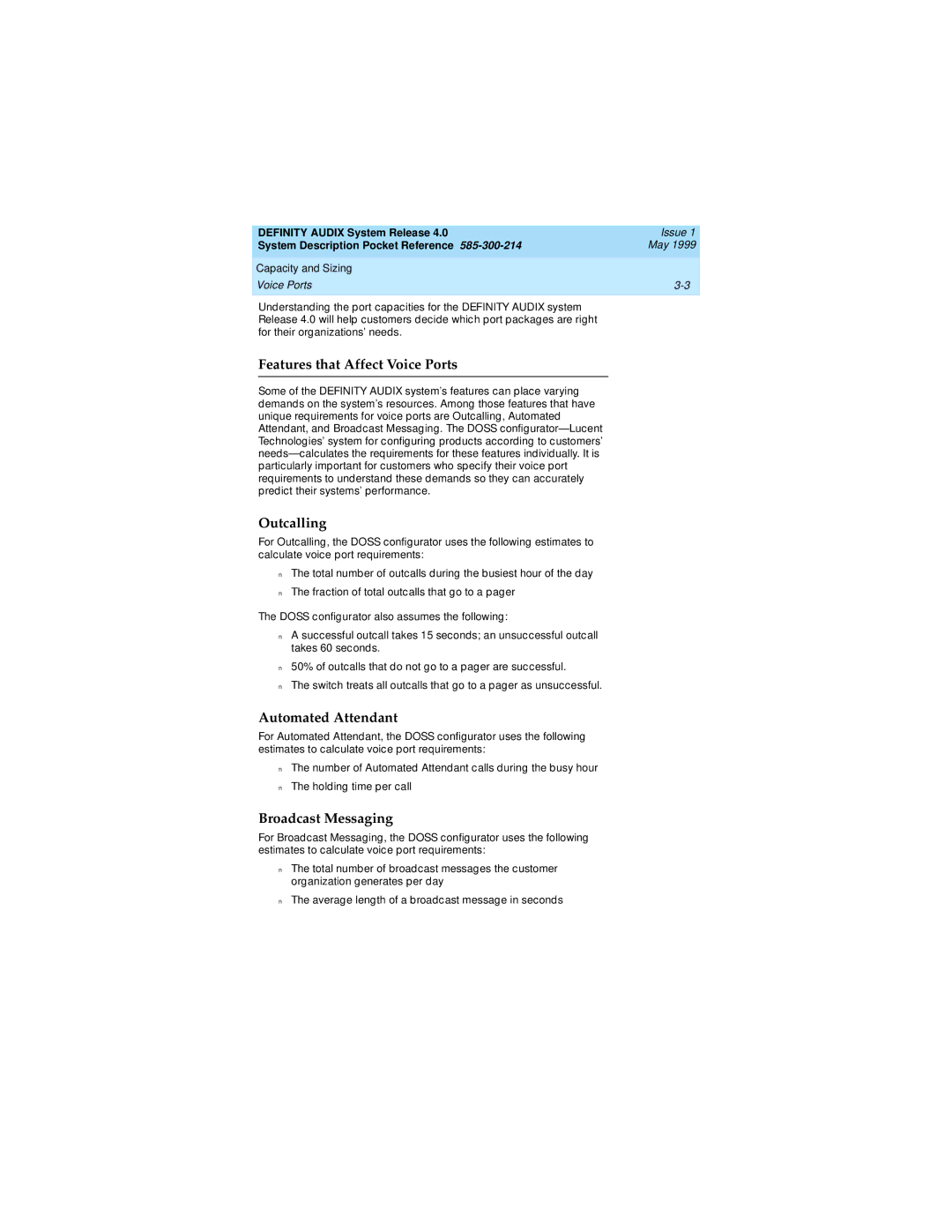DEFINITY AUDIX System Release 4.0 | Issue 1 |
System Description Pocket Reference | May 1999 |
|
|
Capacity and Sizing |
|
Voice Ports | |
|
|
Understanding the port capacities for the DEFINITY AUDIX system Release 4.0 will help customers decide which port packages are right for their organizations’ needs.
Features that Affect Voice Ports
Some of the DEFINITY AUDIX system’s features can place varying demands on the system’s resources. Among those features that have unique requirements for voice ports are Outcalling, Automated Attendant, and Broadcast Messaging. The DOSS
Outcalling
For Outcalling, the DOSS configurator uses the following estimates to calculate voice port requirements:
■The total number of outcalls during the busiest hour of the day
■The fraction of total outcalls that go to a pager
The DOSS configurator also assumes the following:
■A successful outcall takes 15 seconds; an unsuccessful outcall takes 60 seconds.
■50% of outcalls that do not go to a pager are successful.
■The switch treats all outcalls that go to a pager as unsuccessful.
Automated Attendant
For Automated Attendant, the DOSS configurator uses the following estimates to calculate voice port requirements:
■The number of Automated Attendant calls during the busy hour
■The holding time per call
Broadcast Messaging
For Broadcast Messaging, the DOSS configurator uses the following estimates to calculate voice port requirements:
■The total number of broadcast messages the customer organization generates per day
■The average length of a broadcast message in seconds
